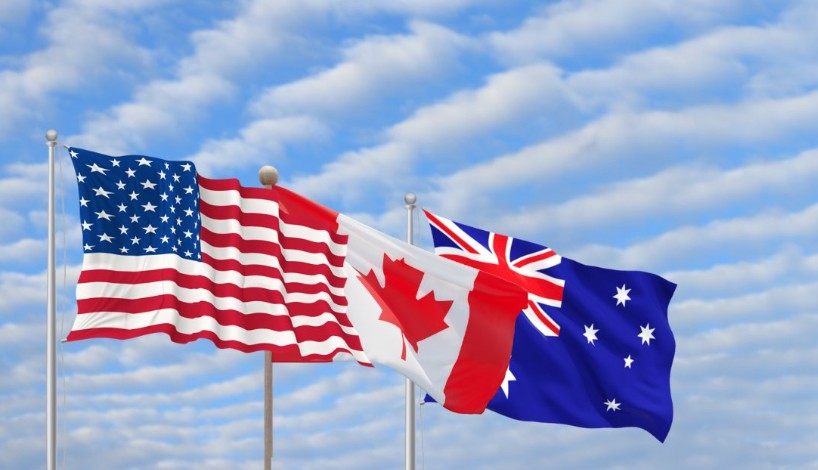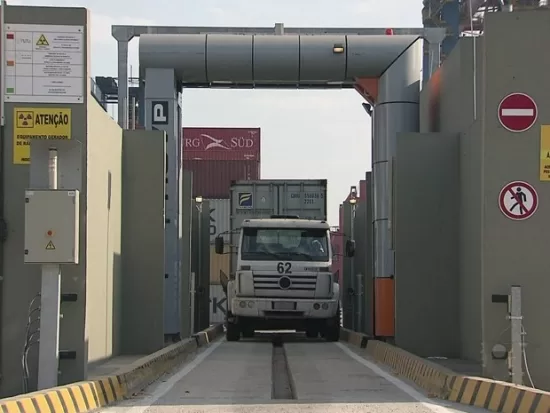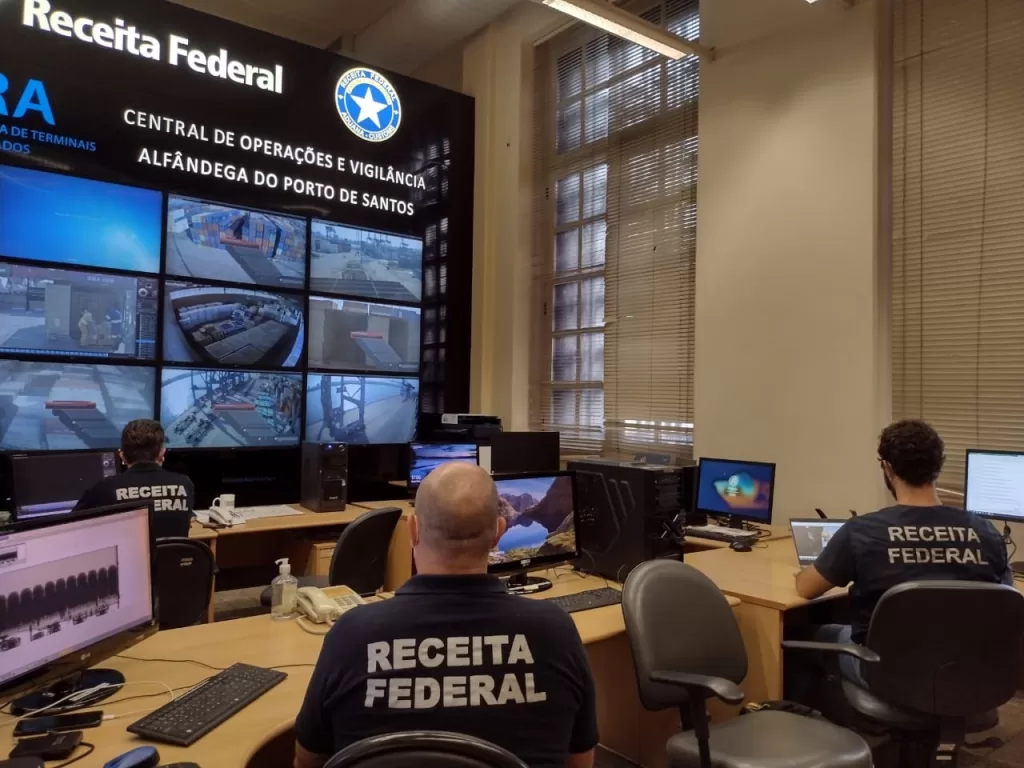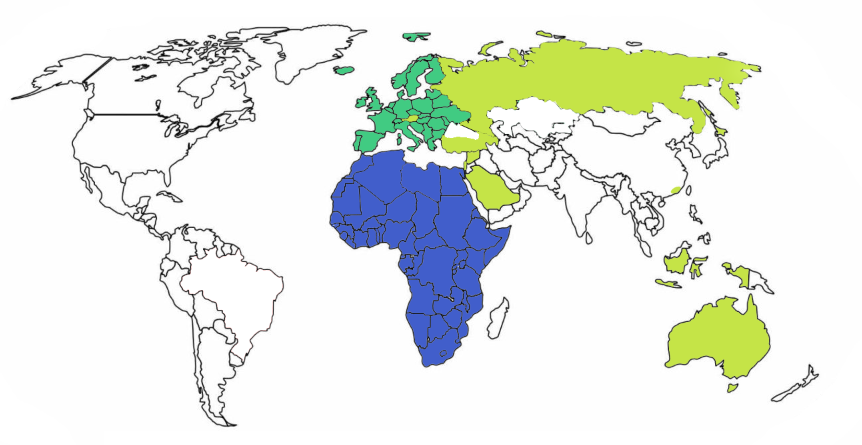
Visa exemptions for certain nationalities rei...
read more

In a further effort to tackle drug smuggling through Latin America’s busiest port, customs authorities made it compulsory to scan shipping containers exported to certain countries outside Europe and Africa, where this obligation already exists
Around five million full containers, or 8.5 million twenty-feet equivalent units (TEU), are handled annually in and out of Brazilian port terminals.
The primary container exporting ports are Santos, Paranaguá, Navegantes, and Itapoá, all located in Brazil’s South and Southeast regions. Together, these ports ship about three million TEUs abroad every year, mainly to ports in the United States, Spain, China, Singapore and Morroco.
For many years, shipping containers have been the preferred method for transporting large quantities of illegal substances, typically cocaine, to foreign markets due to their versatility, interchangeability and traceability. The high profitability of the maritime drug trade allows mighty criminal organisations to rely on a wide range of smuggling methods and routes, which constantly evolve in response to lagging law enforcement efforts.
Restrictions imposed during the COVID-19 pandemic resulted in the heightening of security in customs-bonded container terminals, leading smugglers to seek alternative means to shift drugs by other means, such as stashing cocaine packages in the hulls of ships (within sea chests and other underwater compartments). However, despite the implementation of advanced security technology at container terminals, including non-intrusive inspections such as cargo scanning and canine drug detection, container use for drug transportation continues to prevail.
Strategically located approximately 70 kilometres from São Paulo, the largest city in Latin America, Santos stands out as the primary container hub on the East Coast of South America, handling over a third of all container exports from Brazil.
According to statistics from the National Waterway Transport Agency (ANTAQ), last year, over a million TEUs packed with chemical compounds, sugar, coffee, frozen beef, cotton, and other commodities departed from Santos to ports in 96 different countries, mainly in Morroco, Singapore, Spain, China, USA, Argentina, the Netherlands and Belgium.
Unsurprisingly, the port in Southeast Brazil is extensively used by criminal groups to smuggle cocaine overseas, either concealing the drug inside the cargo space or within the structure of refrigerated containers.
All container terminals that handle export goods, whether private or public, are strictly monitored and surveilled by the Federal Revenue Service (customs authorities). Among their responsabilities is the task of combating contraband, smuggling and other illegal activities at Brazilian ports, airports and ground crossings.
In 2023, approximately 36% of all containers shipped from Brazil were loaded at Santos. During this period, law enforcement seized roughly four tonnes of cocaine in cargo units stuffed with a variety of goods. Additionally, an unspecified amount of cocaine hidden in containers originating from Santos was also intercepted by police forces in European ports.
The drug trafficked through the Port of Santos is typically concealed in containers using the ‘rip-on/rip-off’ method (hiding the drug within legitimate goods) and its variations or within the structure of reefers carrying perishable goods, which typically have a faster turnaround at ports.
Cargo scanners have been gradually implemented and upgraded in busier container terminals over the past decade to ensure cargo compliance with shipping documents and to detect contraband, drug smuggling, weapons, and other threats.

In 2016, in response to a growing number of containers contaminated with cocaine, Santos Customs House mandated the scanning of all containerised cargo destined for European ports. Three years later, the requirement was extended to include ports on the African continent. In 2022, the local customs authorities made scanning all imported containers, including empty units, mandatory.
To further curb maritime drug trafficking in containers, the Santos customs authorities issued Ordinance ALF/STS n°182 determining that, as of 1 July 2024, scanning of all export containers whose ports of discharge, transhipment or final delivery are located in any of the following countries:
The rule will remain in effect until at least 31 December 2024, when the Customs will review the position.

Please read our disclaimer.
Related topics:
Rua Barão de Cotegipe, 443 - Sala 610 - 96200-290 - Rio Grande/RS - Brazil
Telephone +55 53 3233 1500
proinde.riogrande@proinde.com.br
Rua Itororó, 3 - 3rd floor
11010-071 - Santos, SP - Brazil
Telephone +55 13 4009 9550
proinde@proinde.com.br
Av. Rio Branco, 45 - sala 2402
20090-003 - Rio de Janeiro, RJ - Brazil
Telephone +55 21 2253 6145
proinde.rio@proinde.com.br
Rua Professor Elpidio Pimentel, 320 sala 401 - 29065-060 – Vitoria, ES – Brazil
Telephone: +55 27 3337 1178
proinde.vitoria@proinde.com.br
Rua Miguel Calmon, 19 - sala 702 - 40015-010 – Salvador, BA – Brazil
Telephone: +55 71 3242 3384
proinde.salvador@proinde.com.br
Av. Visconde de Jequitinhonha, 209 - sala 402 - 51021-190 - Recife, PE - Brazil
Telephone +55 81 3328 6414
proinde.recife@proinde.com.br
Rua Osvaldo Cruz, 01, Sala 1408
60125-150 – Fortaleza-CE – Brazil
Telephone +55 85 3099 4068
proinde.fortaleza@proinde.com.br
Tv. Joaquim Furtado, Quadra 314, Lote 01, Sala 206 - 68447-000 – Barcarena, PA – Brazil
Telephone +55 91 99393 4252
proinde.belem@proinde.com.br
Av. Dr. Theomario Pinto da Costa, 811 - sala 204 - 69050-055 - Manaus, AM - Brazil
Telephone +55 92 3307-0653
proinde.manaus@proinde.com.br
Rua dos Azulões, Sala 111 - Edifício Office Tower - 65075-060 - São Luis, MA - Brazil
Telephone +55 98 99101-2939
proinde.belem@proinde.com.br